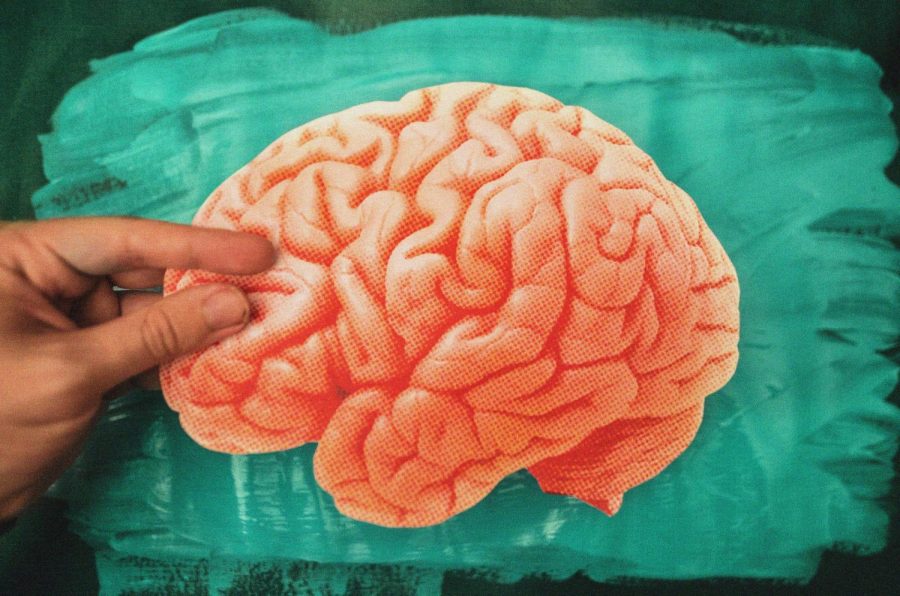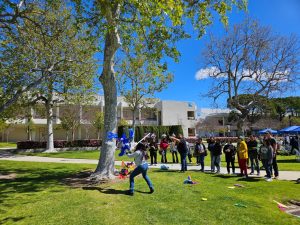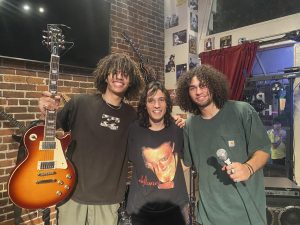Mindfulness seminar offers tools and tips on finding peace and understanding
Understanding both Professor Klein’s mindfulness tips and her field of Sociology can improve one’s self, and calm their mind. Photo credit: James Schaap
May 8, 2017
A seminar on mindfulness and social imagination was held during Multicultural Day. The seminar offered students advice on how to become self aware and more understanding of others.
The seminar, “How to use Mindfulness Tools and Social Imagination to have Difficult Discussions,” was led by sociology professor, Melanie Klein, and sociology major Noah Krapff. They explained why we feel the need to have self pity or why we judge so quickly. Their course objective was how we can overcome such negativity and create a positive turn in our reality.
“People think they aren’t smart, attractive, or fun enough.” said Klein, “Sociology made me realize that I am part of a larger set of circumstances than just qualities.”
Krapff explained that sociology is a social science. It takes real world knowledge and studies it. Both Krapff and Klein explained that it is a misunderstood field.
Sociology involves mindfulness, which is defined as the process by which we become self aware.
“People couldn’t understand the connection I was beginning to form with myself,” said Klein. “They thought it was weird that I was bridging my consciousness with my own being.”
According to Klein, those who are close minded and opinionated are not self aware. This is why people cannot thoroughly communicate with others or even themselves in a positive manner.
“It is easy to be dominated when the mind is separate from the body,” said Klein. “The more whole we are, the easier it is to engage with the world.”
The seminar explained that taking a step back and having a span of time between a situation and a response can eliminate any misunderstandings or arguments. Rewording responses in a more insightful and interested way rather than an attacking type of manner will also allow for greater understanding from each standpoint.
“If we are discussing politics and ask somebody, ‘where did you get that information?’ they may become defensive,” said Klein. “But if we reword it and maybe ask ‘Hmm, I haven’t heard that, can you send me the link to read up on that?’ it creates a more understanding situation and a less defensive conversation.”
The social imagination concept accepts the fact that our history affects who we are. This is why many humans are defensive in their beliefs.
“We are individuals to ourselves, but we influence those around us, and those around us influence who we are,” said Krapff. “We’re shaped by our surroundings.”
Krapff went on to explain that had he been born in a different country, or a different decade, or even a different city, he would not be who he is today.
“We can use the knowledge of possible differences to understand and engage in more enhanced conversations,” said Krapff.
Karpff considers a persons’ background instead of ones’ own perception, and being mindful of such differences will allow a greater perspective in conversations and decrease turmoil.
Klein and Krapff offered the acronym B E A W A R E, as a helpful tip on how to work on mindfulness and social imagination.
Be- simply be, Embody, Aware, Witness, Accept, Reflect, Engage.
Although it may take some time, Krapff explained that it is incredibly worth it and made a massive change in his life.






